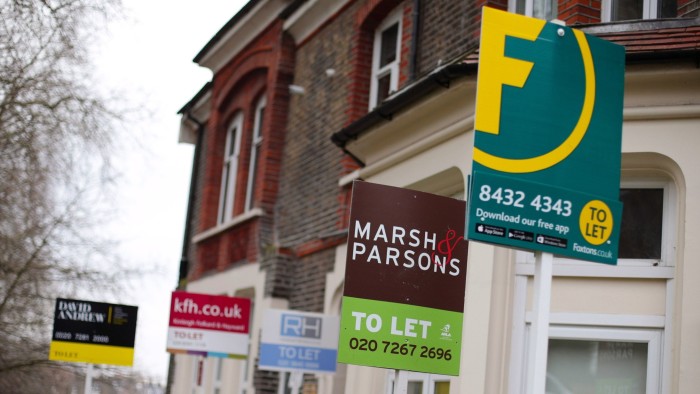Stay informed with free updates
Simply sign up to the Cost of living crisis myFT Digest — delivered directly to your inbox.
UK tenants were hit by the highest inflation rate of any household group, overtaking those with mortgages, according to official statistics that reflect the impact of rising rents.
Household cost inflation for private renter households rose by 3 per cent in the year to September, which was higher than the 2.6 per cent for those with mortgages for the first time since comparable data began in 2022, the Office for National Statistics said on Thursday.
The inflation rate for renters was the highest of any group and compared with a rate of 1 per cent for those who own their home outright, 1.1 per cent for retired people and 2 per cent for all households.
The ONS attributed the latest trend to rising rent payments. Separate data published last week showed that average private rents increased by 8.7 per cent in the 12 months to October, up from 8.4 per cent in the 12 months to September and the fastest pace since April.
Sarah Cumbers, chief executive of the Royal Statistical Society, said the figures showed that inflation was “not having the same impact on everyone, with private renters seeing the highest rate of inflation but those with mortgages closely following”.
She added that these different experiences are something that the headline rate of inflation failed to capture, and urged policymakers to “refer to the household costs indices to better understand how rising costs are impacting different groups, and particularly the most vulnerable”.
The household cost inflation figures compare with the 1.7 per cent rate of consumer price inflation for September.
The data was part of the first quarterly publication of the ONS household cost index, which is based on how much different types of households spend on goods and services.
The headline inflation rate, by contrast, reflects an average of goods and services consumed by all UK households. Services prices, which have risen this year, have a greater impact on richer households because they spend a bigger share of their income on non-essentials. In contrast, energy prices, which have fallen this year, affect poorest households the most.
Data published on Thursday showed that richer households experienced annual inflation of 2.5 per cent, compared with 1.4 per cent for poorer households.
In October, new tenants on average spent about 30 per cent of their income on rent, the highest since records began in 2017, according to property data company PriceHubble published also on Thursday by the ONS.
Over the past three years, more people have had to rent following fast rises in house prices since 2020 and the surge in mortgage costs in 2023. At the same time, landlord’s listings of properties to rent have been contracting, reflecting higher costs, according to the Royal Institution of Chartered Surveyors.
In contrast with rents, mortgage rates have been declining since their peak in the summer of 2023, as the Bank of England has cut its base rates.
Source link









